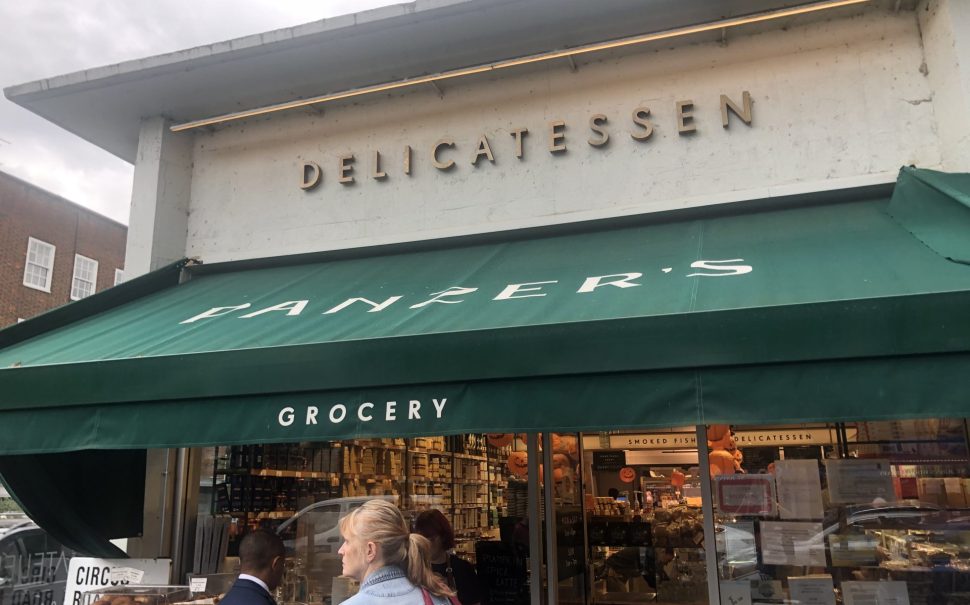British Jewish Food Week was celebrated across the capital during the week of 2nd-7th October, which begs the question: How exactly can Jewish food culture be defined in London?
In New York, delis and Jewish staple dishes are representative of the city’s food culture.
As Anthony Bourdain said: “We have better deli than you,” and establishments like Katz’s, Pastrami Queen and Russ & Daughters immediately leap out as food places that are emblematic of The Big Apple.
In London, there isn’t such an instant identification with Jewish eateries, and aside from the obvious numerical difference between the two cities, Jewish food culture here seems much more understated.
Vittles magazine said: “British Jewish food – like British Jewish culture – exists, it’s just not as visible.”
This imperceptibility can be tied to how valuable community is to the Jewish food experience in London.
The overriding message from different Jewish establishments is the importance of sitting down together at a table and sharing a meal together.
David Jacobs, owner of Panzer’s Deli in St Johns Wood, said: “The relationship between Jewish food and community is fundamental.
“In my family, it meant sitting around the table and arguing about politics.”
This kind of intimacy, whereby the prerequisite of food is that it is shared with others, naturally creates a type of privacy, which can be interpreted as reservedness. Yet the significance of food eaten together cannot be taken for granted in London’s Jewish community.
The Chicken Soup Shelter, a Jewish food charity in Finsbury Park, epitomises this notion.
Its motto is “Hot Meals, Warm Company,” and on its website, it says: “Eating keeps us alive, but eating with friends and family makes life worth living.
“We therefore use food as a way of helping lonely and vulnerable people integrate into the community to the maximum possible extent, and to help fragile families become more functional and happy.”
Rabbi Yisroel Weisz, 40, of The Village Shul Synagogue, echoes this sentiment.
He said: “We do regular Friday night dinners for synagogue members, as well as pop-up meals across London, where chefs from non-kosher restaurants come to adapt ingredients for kosher meals.”
He continued: “People love it – it is very powerful for them to experience together the best foods on a culinary level but also for it to be kosher.
“It teaches everyone that kosher does not need to be restrictive and that it can be enjoyed in lots of different ways.”
While less recognisable, London’s deli scene still offers some very interesting options.
Panzer’s in St Johns’ Wood is a unique hybrid of bakery, coffee shop, sushi bar, grocery shop, wine vender, and, finally deli. Vittles amusingly describes it as a “culinary amusement park for the Jew-adjacent”, and this plethora of possibilities is indicative of how diversification has become a necessity.
Owner David Josephs said: “Compared to when we opened in 1944, the number of our clientele who are Jewish has dropped from 90% to 25%.
“Therefore, the business has to be evolved over time in order to cater for a wide range of interests.”
However, when asked what the majority of customers keep coming back for, Jacobs’ answer suggests that traditional habits continue to reign supreme.
He said: “It’s the smoked salmon and bagels for everyone.
“Once they have had our smoked salmon and bagels then everything else slightly pales by comparison.”
Another niche within UK Jewish food culture is the origins of fish and chips.
Belying their image as a quintessentially English food item, fish and chips has its roots in 14th century Portuguese Judaism, where those fleeing the Inquisition brought the idea of fried fish to British shores.
Maxim’s in Golders Green is one of many kosher restaurants where fish and chips are crucial. It provides its largely Jewish customer base with the dual benefit of delicious comfort food which also fulfils the highest kosher standards – there is no risk of contamination between meat and dairy.
Manager Moshe Nahari, 71, said: “The most popular dish on the menu is the haddock and chips.
“You have to have the combination of a dish that’s going to fill them up, but also you can’t take the risk about mixing things together.”
According to Moshe, customers at Maxim’s are easily pleased: “Give them fish and chips, with potato and salad, and they will be happy.”
This I do not doubt at all, yet this meal eaten together, amongst family and friends, appears to be the final garnish typifying the essence of Jewish food culture in London.





Join the discussion